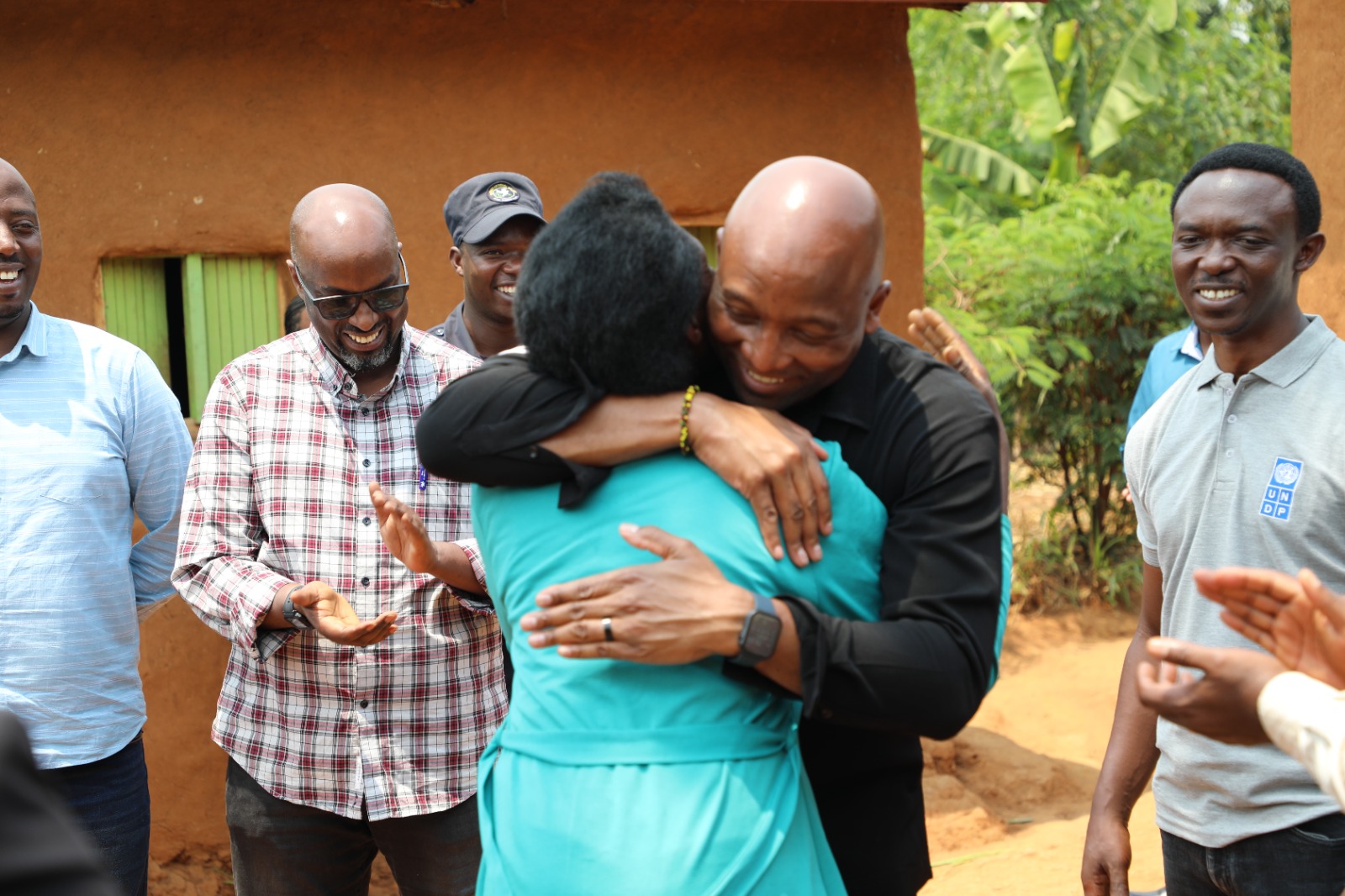By Maxwell Gomera
From Dung to Dinner: Biogas Transforming Cooking Energy in Rwanda
March 16, 2023

Maxwell Gomera, the UNDP Resident Representative gives a hug to Marie Jose, a Beneficiary of the Home Biogas
Nearly 80% of Rwandan households must cut down a tree to put a meal on their table. The lack of access to clean cooking energy has been a persistent problem for millions of households in Rwanda, particularly for women like Marie José, a single mother of four who often struggled to find firewood to cook for her family. Like many women in her situation, Marie José faced the threat of violence and even rape as she searched for firewood in remote and unsafe areas. Her family would go without a cooked meal if she returned home empty-handed.
In addition, the constant search for firewood contributes to increasing deforestation and environmental degradation – depriving rural households of the natural resources they need to survive. It's a vicious cycle.
UNDP Rwanda has successfully tested an innovative and sustainable solution. The installation of Homebiogas units in 500 households, including Marie José's, has transformed their lives.
"President Paul Kagame gave me a cow through the Girinka programme, and now UNDP has given me biogas! At 49 years of age and I had never heard of biogas, but it has transformed my life."- Marie Jose Mukandahunga, a resident in Ngoma District. "Now, I'm more independent and no longer struggle with cooking energy. Thanks to the home biogas, my family eats on time, and I can contribute to protecting the environment by avoiding using firewood."
The success of the home biogas has exceeded our expectations and paved the way for the program's even more ambitious expansion, further contributing to sustainable development and environmental conservation. UNDP addressed three main issues in our Homebiogas pilot: technology, capacity, and finance.
- Technology: Our goal was to install state-of-the-art technology that is easy to maintain in low-resource settings and can survive with minimal care. Home biogas achieves both. It provides six hours of cooking energy from the dung of one or two cows, and the by-product fertilizer grows fodder for the cows, creating a self-supporting system. The Israeli manufacturer offered a three-year warranty, and with proper care, the system can last up to 10 years."
- Capacity: We aimed for a self-sustaining system that households and local engineers can maintain. Home biogas engineers trained the families for two months, creating a community that supports their systems and serves as trainers for others
- Financing: In impoverished areas like Ngoma, affordability was a concern. Home biogas costs $1,000 to install fully, which can challenge many households. We're exploring funding options like carbon markets and government Nationally Determined Contributions (NDCs) while negotiating with the company to address this.
Reaching one million households
UNDP Rwanda recently showcased the successful Homebiogas project to Rwanda's Ministers of Finance, Dr. Uzziel Ndagijimana and Mr. Richard Tusabe. Recognizing its potential to solve the cooking energy challenge in Rwanda, the Ministers proposed three ambitious goals.
1. Roll it out to at least one million households in Rwanda. Currently, 3 million households in the country have no access to cooking power, and Homebiogas could make a significant difference in their lives.
2. Explore the possibility of local manufacture of Homebiogas units. This would lower their cost, create jobs, strengthen local economies, and make Rwanda a manufacturing hub for technology.
3. Explore subsidizing the rollout of Homebiogas units through Ireme Invest or Intego – Rwanda's Carbon financing facility and NDC financing facility.
The Ministers' proposal opens an incredible opportunity to expand the reach of Homebiogas in Rwanda. By rolling out Homebiogas to one million households, it would address the significant dent in the cooking energy crisis and improve the lives of millions of people. The Ministers' action-oriented approach will require a concerted effort from all parties involved. The UNDP is committed to working closely with the Ministers and the Israeli company to make this ambitious plan a reality.

 Locations
Locations



